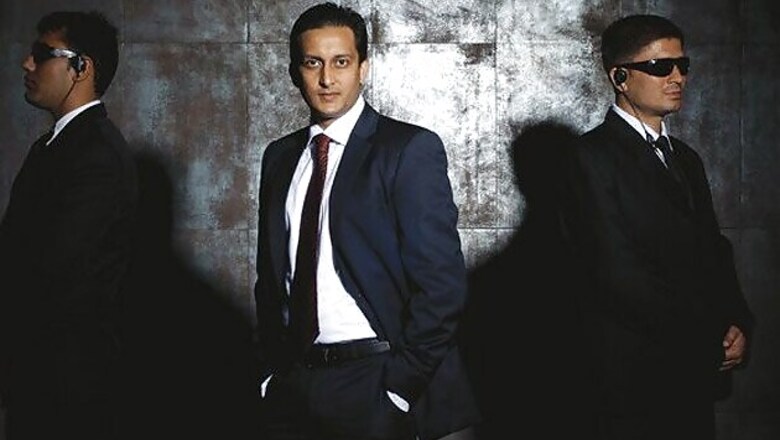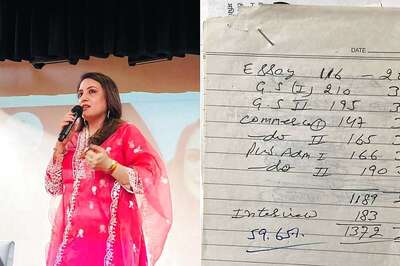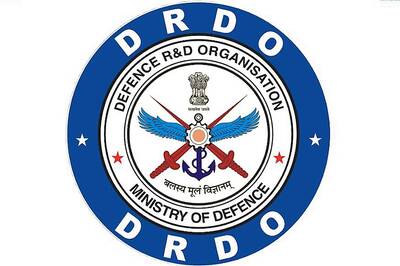
views
At one stroke Rituraj Sinha was putting at stake a business his father had built over 30 years. RK Sinha had founded security service provider SIS (India) in 1974 in Bihar. Now in 2008, his son wanted the Rs 150-crore company to buy an Australian security firm Chubb that was over seven times bigger in revenues.
Not surprisingly, none of the senior officials at SIS were enthusiastic. Rituraj was beset with questions: "Who would give us money to make the acquisition? Do we have the management bandwidth to handle such a huge company?" Rituraj admits, "I knew it was a risk that could bring the company to its knees."
But those were the heady days after Tata Steel had acquired its eight-time bigger peer Corus in 2007. Rituraj, who had joined the family business in 2002, was looking for a global footprint. "I wanted presence in a mature market to balance our portfolio. The high growing and dynamic Indian security market would complement a stable and predictable business in Australia," he says.
The then 27-year-old though had another rude awakening, as not many were willing to take the youngster seriously. Citigroup, which was managing the sale of Chubb on behalf of the latter's parent, US giant UTC, refused to give Rituraj access to company information for due diligence. "First show that you have money to buy," he was told.
Private equity major De Shaw came to the rescue, picking up a 14 percent stake in SIS for about Rs 300 crore. Further, after scores of meetings with banks where many a time he was politely shown the door, Rituraj managed to convince SBI and ICICI to come on board. "I told them that Chubb might be seven times our size in revenue, but with 30,000 employees in 40 branches across India, SIS was five times bigger than Chubb in operations. And then there were enough low-lying fruits for us to turnaround Chubb's business that had an EBITDA (earning before interest, tax, depreciation and amortisation) of less than 2 percent," recollects the second-generation entrepreneur. SIS acquired Chubb for an undisclosed sum ("UTC will sue me if I reveal the number," says Rituraj) in August 2008.
Now, almost four years later, Rituraj's risk has paid off. Revenue of Chubb, now rechristened MSS Security, has remained almost stagnant at $350 million but more importantly, its EBITDA is now touching 8 percent. Post-acquisition measures included sale of loss-making mobile security business and shift of offices from expensive real estate to a cheaper one. Consequently, with consolidated revenue expected to top Rs 2,100 crore in 2011, SIS is today the largest Indian security firm and is knocking on the doors of the elite, global top-10 club.
Jack of all trades master of none?
Rituraj's thirst for growth though is far from quenched. Now 31 years old, he wants to transform SIS from a security service provider to a "business support service provider". Though most of the new verticals are being incubated right now, this will add electronic security, cash management, pest management and facilities management to the present manned guarding business. "There is an immense cross-selling opportunity. Apart from guards, our clients also want someone to take care of their offices, manage their security cameras," says Rituraj, who is Group Chief Operating Officer. This, adds Uday Singh, CEO of SIS, "will not only make the company an integrated player but will also make it more profitable as these businesses have higher margin than the guarding segment."
Interestingly, Rituraj's move comes at a time when another dynamic entrepreneur from the industry, Diwan Rahul Nanda, owner of Tops Group, is just taking the opposite direction. Rituraj claims that SIS will topple Tops this year to become the largest Indian-owned security firm in India. The local unit of G4S, the US major, is the country's largest.
Nanda is not amused. "We have already done whatever the competition is trying to do, including global acquisition and getting into other segments," he says. But the London-based entrepreneur, also a second-generation entrepreneur like Rituraj, is now restructuring his business by refocussing resources in the core business—manned guarding. "Starting a new vertical is easy but managing it is difficult. Management bandwidth comes under a lot of pressure...instead of being jack of all trades and master of none, I have decided to focus on my core strength," adds Nanda. Not surprisingly, Tops, which acquired Shields in the UK in 2008, has managed to grow only by "around 2 percent" in the last three years; a far cry from 2009 when Nanda told Forbes India that "we will overtake G4S within a year".
Rituraj agrees that "overheating" of SIS is a risk, especially when its Indian business alone is growing at almost 50 percent year-on-year. "The growth appetite of the company will be challenged," he says; especially when he also wants to expand the global footprint to West Asia.
"Right now Asia-Pacific is just 10 percent of the global security market. But this region is growing by about 15 per cent, while the mature markets like the US and Europe have only about 2-3 per cent of annual growth. I believe that 10 years later the Asia-Pacific region will be 25 percent of the global market," says Rituraj. With no other global firm except for G4S having much of a global footprint in the region, Rituraj wants to be among the first movers and his next acquisition might come in West Asia.




















Comments
0 comment